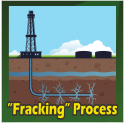Pennsylvania Marcellus Shale Drilling Report Released
On Thursday, July 28, 2011
0
comments
According to a July 27th article published by the River Reporter, It’s not clear if the legislature and the governor will embrace any of the 96 recommendations contained in a new report from the Marcellus Shale Advisory Commission, but if they do, there could be significant changes coming to the way gas drilling with high-volume hydraulic fracturing is conducted in Pennsylvania.
The commission’s recommendations, which were released on July 22, did not say anything about a severance tax on gas drilling and, in fact, when Governor Tom Corbett ordered the creation of the commission in March, he barred the participants from considering a tax. But they did make a recommendation regarding fees.
The report said, “Based upon the testimony presented, research conducted and first-hand personal experiences, the commission recommends the enactment of—or authorization to impose a fee for—the purpose of mitigating and offsetting the uncompensated portion of demonstrated impacts borne by the citizens and local governments of the Commonwealth attributable to unconventional natural gas development.”
David M. Sanko, executive director of the Pennsylvania State Association of Township Supervisors, who was a member of the commission, said, “By embracing a local impact fee, the commission is helping to avoid potential property tax increases. At the same time, the commission endorsed the preservation of local common-sense zoning over a state-mandated ‘one-size-fits-all’ solution. This ensures that our local leaders and citizens maximize the benefits of natural gas exploration and minimize the negative impacts.”
Among the other notable recommendations is that natural gas should be considered an alternative energy. The report says the Alternative Energy Portfolio Standards Act of 2004, which requires electricity providers to purchase 18% of the power they distribute from renewable sources by 2020, should be amended to say that natural gas from the Marcellus Shale is an acceptable alternative energy.
This has caused concern among some environmentalists who say that making gas part of the mix would cause other renewable sources to be used less, and since natural gas is already used to create a large amount of electricity in Pennsylvania no incentive is needed.
Lt. Governor Jim Cawley, who chaired the 30-member commission, released a statement that said, “This commission brought the industry, environmental groups and local government leaders together to the same table where we methodically and publicly worked out these comprehensive recommendations.”
Among the recommendations listed in the press release were: Increasing the distance between gas well sites and streams, private wells and public water systems; posting more information online for the public; instituting tougher civil and criminal penalties for violators; assisting PA companies to do business with the natural gas industry; training Pennsylvanians to work in the industry; and developing “Green Corridors” for vehicles powered by natural gas.
Go to http://www.portal.state.pa.us/portal/server.pt/community/news_releases/1... to see the full report.
The commission’s recommendations, which were released on July 22, did not say anything about a severance tax on gas drilling and, in fact, when Governor Tom Corbett ordered the creation of the commission in March, he barred the participants from considering a tax. But they did make a recommendation regarding fees.
The report said, “Based upon the testimony presented, research conducted and first-hand personal experiences, the commission recommends the enactment of—or authorization to impose a fee for—the purpose of mitigating and offsetting the uncompensated portion of demonstrated impacts borne by the citizens and local governments of the Commonwealth attributable to unconventional natural gas development.”
David M. Sanko, executive director of the Pennsylvania State Association of Township Supervisors, who was a member of the commission, said, “By embracing a local impact fee, the commission is helping to avoid potential property tax increases. At the same time, the commission endorsed the preservation of local common-sense zoning over a state-mandated ‘one-size-fits-all’ solution. This ensures that our local leaders and citizens maximize the benefits of natural gas exploration and minimize the negative impacts.”
Among the other notable recommendations is that natural gas should be considered an alternative energy. The report says the Alternative Energy Portfolio Standards Act of 2004, which requires electricity providers to purchase 18% of the power they distribute from renewable sources by 2020, should be amended to say that natural gas from the Marcellus Shale is an acceptable alternative energy.
This has caused concern among some environmentalists who say that making gas part of the mix would cause other renewable sources to be used less, and since natural gas is already used to create a large amount of electricity in Pennsylvania no incentive is needed.
Lt. Governor Jim Cawley, who chaired the 30-member commission, released a statement that said, “This commission brought the industry, environmental groups and local government leaders together to the same table where we methodically and publicly worked out these comprehensive recommendations.”
Among the recommendations listed in the press release were: Increasing the distance between gas well sites and streams, private wells and public water systems; posting more information online for the public; instituting tougher civil and criminal penalties for violators; assisting PA companies to do business with the natural gas industry; training Pennsylvanians to work in the industry; and developing “Green Corridors” for vehicles powered by natural gas.
Go to http://www.portal.state.pa.us/portal/server.pt/community/news_releases/1... to see the full report.







